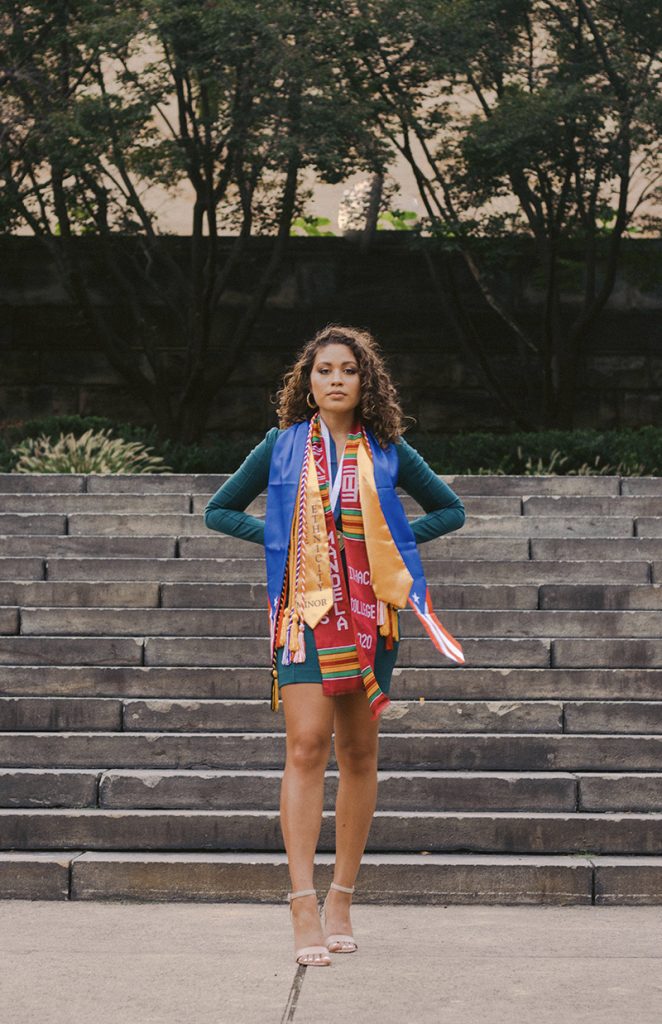Dr. Barlas,
I was a sophomore when I met you for the first time. At that point in my life, I was still struggling to find professors who could see me for all that I was and all that I could be. I was met with a multitude of unpleasant experiences from professors who had no desire to understand the kind of student I was, or where I came from. I was not familiar with the power dynamics between professors and students and was not prepared for the backlash or ignorance that hailed my way. I felt both invisible and hyper-visible to my professors as they comfortably drew attention to everything they felt I lacked.
You were one of the first professors who saw me. In my opinion, you saw all of your students. In asking us to bridge the gap between our seats in class, asking us to hold each other accountable, to engage in conversation, and look at each other while we were in this circle. You saw us and you wanted us to see each other.
You created a classroom experience in which students of color, in particular, could not only “take space” but reveal and share our pain, allowing us to feel these emotions together. This showed me that a different learning experience was possible. Classrooms could be safe, inviting, and capable of holding intimate moments. I could be a student and a real person at the same time.
You influenced the shifting of my understanding of grades and work, relating back to my identity as a student who had come from a low-income, first-gen background. I did not receive the same resources or prep that some of my peers had before arriving at IC. Something special about your teaching style was the way you assigned work. You allowed our journals and final papers to be open concept. We had the freedom and agency to be as creative as we desired. There was no right or wrong answer. While this may be off-putting for those who prefer structure, it was exactly what I needed. I was able to submit completely unconventional papers, yet extremely representative of who I was and how I personally processed the ideas and content we learned in class. You allowed me to write a letter to my father who had passed away after being in and out of prison my entire life as I analyzed the work of Kiese Laymon and William Finnegan. You allowed me to write vignettes about my Bisabuela, Abuela, mother, and sister and my family’s history of generational trauma while incorporating the themes and work from Leanne Simpson, Franz Fanon, and Albert Memmi. And when the pandemic took over our spring semester of senior year and my brain decided to stop processing things you allowed me to write a mock documentary series exploring how the United States is an empire, leaving viewers to question the notion of American exceptionalism, the binary between good and evil, power structures domestically and abroad in connection to the U.S, methods of oppression, and American rugged individualism.
I could bring my complexities into your classroom and still be just as deserving and visible as every other person in the room. It was okay to process things differently.
The topics covered in your class often overlapped with my lived experiences and identity both inside and outside of higher education. One of the last books we read before virtual learning was “How to Hide an Empire: A History of the Greater United States” by Daniel Immerwahr. Immerwahr provides 400 pages of evidence proving places such as the Philippines, Guam, Hawaii, and Puerto Rico were collateral damage in the face of “democracy” building because America “knew best.”
To tie this back to identity- While a few of my peers were learning for the first time about specific violent reinforcements that white supremacy called for in places like the Philippines, Guam, Hawaii, and Puerto Rico, I found myself in a delicate state of grieving. My family is from the beautiful island of Puerto Rico. It is the island they have always called home, and it is the place that I hold closest to my heart. I have always been intentional in learning our history, understanding the power of our independence movements, and staying updated on the island’s current issues. This however does not change the fact that I was born in the United States. Therefore my identity is not only tied to the island that I love so much but also to the U.S, the country that has suffocated, murdered, ignored, and continues to oppress the residents of Puerto Rico.
You gave me the space to be frustrated and disgusted with the fact that it is my island’s colonial status and forced citizenship that allows me to go back and forth from here to there. You sat in silence with me and extended compassion as you identified and understood where my pain came from. You saw me.
You taught me that it is only when we release those frustrations, reservations, and pain that we may get the chance to understand who we truly are and how our identities can incorporate various complexities at the same time. I would not be the person I am today without experiencing breakthroughs in your class. I am eternally grateful for your patience, encouragement, and knowledge that you so gracefully shared with us.
There is truly no one like you. You will forever have a place in my heart and mind.
Thank you for seeing me.
Love,
Alexzandria Sanchez
